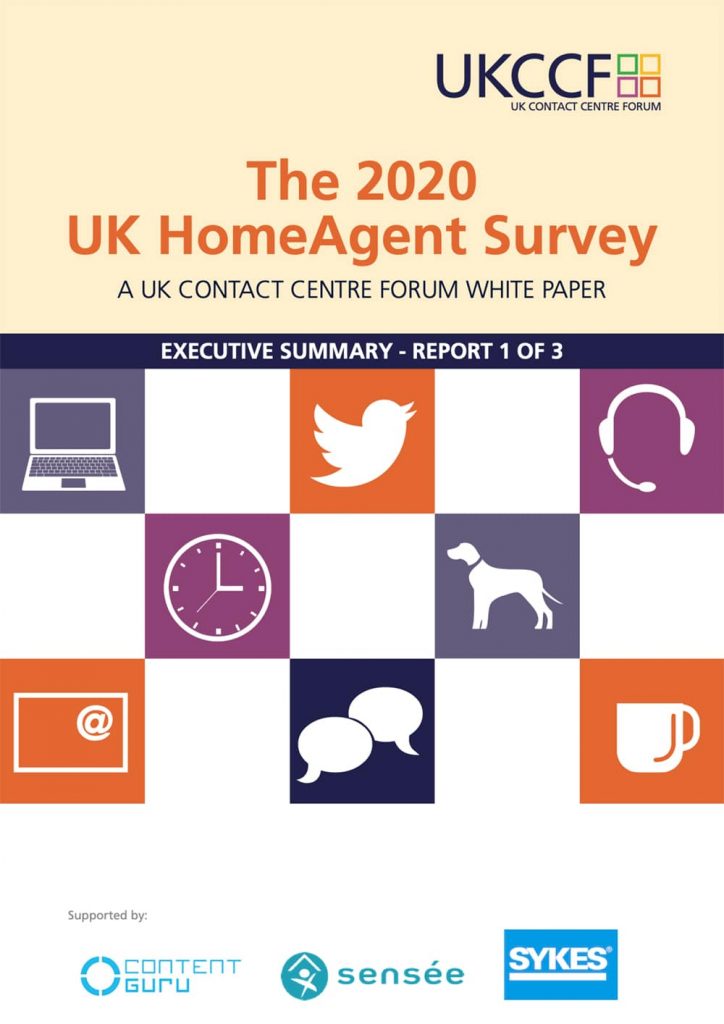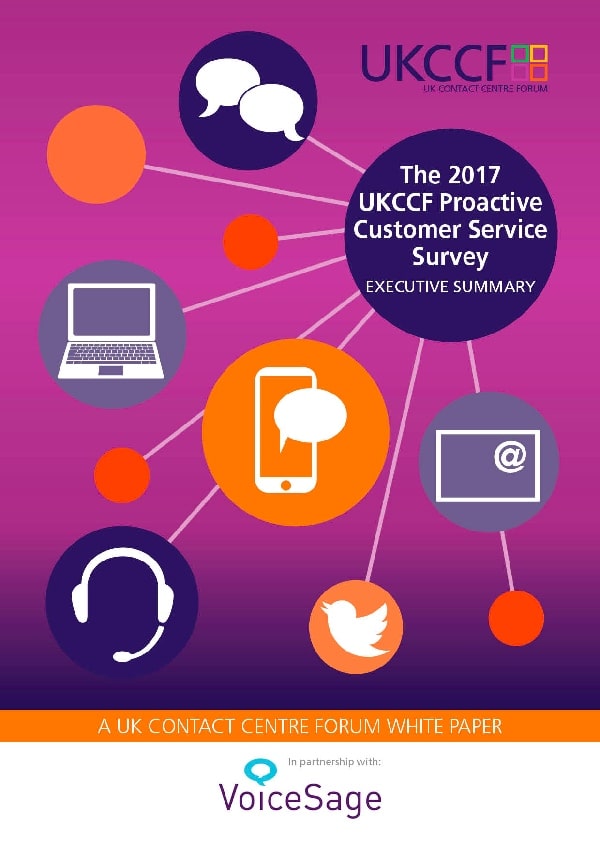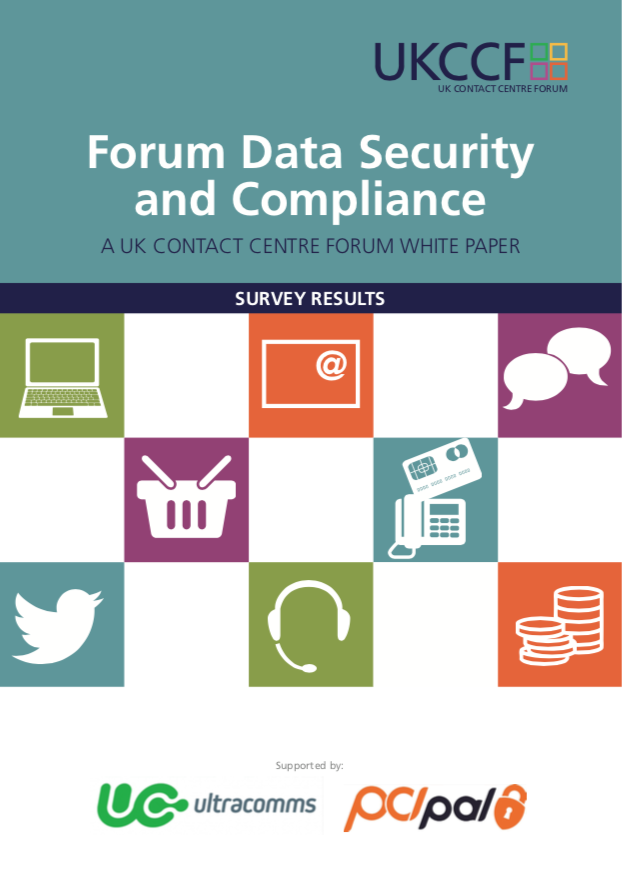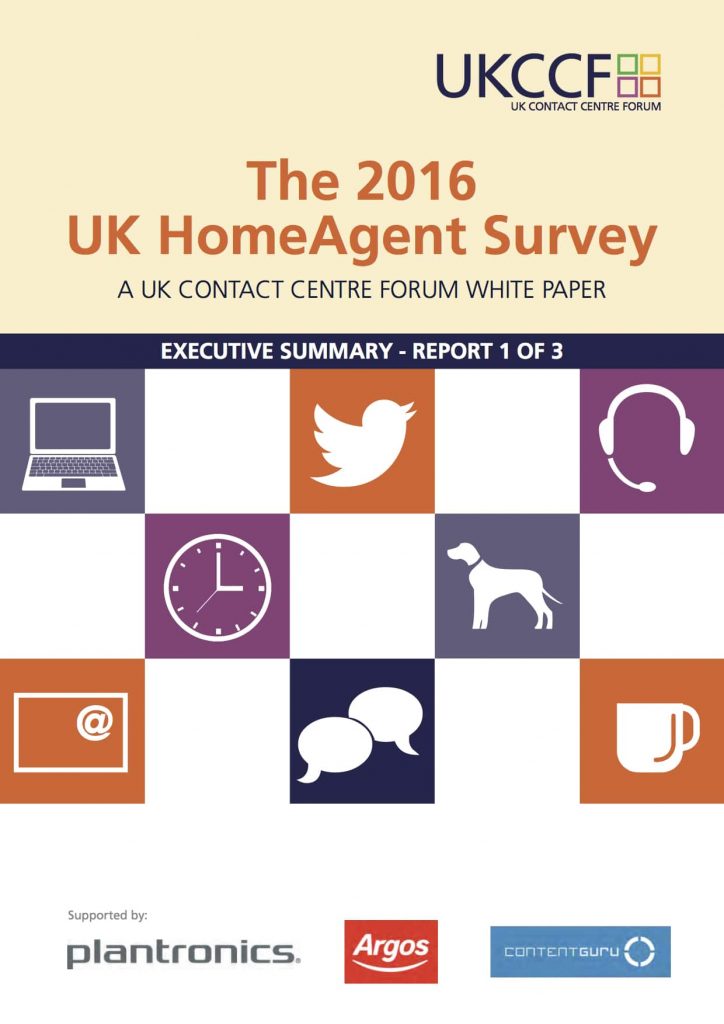SENTIMENT & WELLBEING SURVEY 2021
Throughout March 2021, psd and The UK Contact Centre Forum ran an in-depth survey to focus on current business sentiment and wellbeing within the contact centre industry.
650 individuals took part in the survey and polls, giving a good cross section of the Customer Contact industry.
Almost 90% of the survey respondents were at manager level and above in the Contact Centre & Customer Experience (CX) sectors. These individuals have been at the forefront of leading their teams and businesses through the Covid-19 pandemic. We would like to again thank all that took part.
As businesses plan to get back to ‘normal’ we hope that these results will be of use in improving wellbeing support to colleagues. Contributors from John Lewis, Hansgrohe and Hitachi Capital UK LTD have also provided their views of the findings, including insights into their own experiences.
From our results it is great to see so much positivity around headcounts as we come out of the pandemic, as 41% of those who took part feel that their organisational/ contact centre headcount will grow over the next 12 months.
With this predicted growth it is even more important that robust wellbeing strategies are cemented into businesses. Providing an environment where wellbeing can be openly discussed and supported will be key to many organisations as they take advantage of the business growth that this survey indicates is ahead of us.
Are you offering what your leaders and colleagues really need to assist with their wellbeing?

THE 2020 UK HOMEAGENT SURVEY
The survey was conducted between November 2019 and the middle of March 2020, prior to the Covid-19 lockdown in the UK. It is the second time the survey has been run, the first was in 2016.
300 Managers/ Directors and HomeAgents took part in the 2020 UK HomeAgent study by completing online questionnaire surveys.
Get your FREE Executive Summary of the UK Contact Centre Forum’s 2020 UK HomeAgent Survey and discover why:
- 47.3% per cent of contact centre operators responding to our survey employ homeworkers (or HomeAgents).
- 70.7% per cent of HomeAgents say that they have a better work-life-balance.
- 61.4% per cent of these organisations say that it creates happier and more productive employees.
WHAT WILL CUSTOMER SERVICE LOOK LIKE IN 2029?
Traditional Customer Contact Centres must adapt to survive claims new survey
The walls of many traditional contact centres will be coming down over the next 10 years according to a new UKCCF survey, in partnership with customer engagement technology provider, Content Guru.
Just 3.2% of contact centre professionals responding to the UKCCF research, “What Will Customer Service Look Like in 2029”, said that they believe their current customer contact operation will look like a ‘traditional contact centre’ by 2029*. 29.3% said that they believe that it will look like a ‘modern contact centre’, with 34.1% seeing customer contact being managed from a ‘modern office’ work-space, and 19.5% a ‘home-based work’ environment. The remaining 13.8% stated that their cus-tomer contact operation will be a ‘mainly automated operation’.
125 contact centre professionals responded to the survey between August and December 2019.
The physical appearance of the contact centre isn’t the only thing predicted to change by 2029. Sur-vey respondents foresee significant developments and enhancements to the way that organisations:
• Design customer experiences
• Manage customer journeys
• View the physical contact centre environment
• Use artificial intelligence to deliver faster and more efficient customer interactions
• Use next-gen technologies to handle, manage and augment customer experiences
• Measure customer experiences and collect/and act on feedback
• Prioritise different aspects of their contact centre operations
• Manage interactions using multiple contact channels
For example, over two-thirds (69.1%) believe that, by 2029, their organisation will be more focused on ‘prevention’ than on ‘cure’ when it comes to Customer Relationship Management (CRM), while 88.7% believe that their organisation will have developed an holistic approach to CRM across all cus-tomer contact channels (phone, email, web chat, social media etc.).
Technology is predicted to play a big part in bringing about this change at every stage of the custom-er lifecycle – from collecting and making sense of data about customer requirements, to identifying problems (possibly before they even occur), to managing and reporting on customer interactions.
72.4% of respondents believe that customers won’t have to identify themselves when making contact because organisations will already know who they are; 82.1% reckon that simple customer queries will be handled by self-service and chatbots by 2029; and 56.6% believe that customer emotion anal-ysis will be commonly used to manage customer queries more effectively.
Having said that, humans will continue to play a key role in the customer contact process – with 89.5% of respondents saying that they believe AI and machine learning will complement agents rather than replace them. And contact centres will remain heavily committed to investing in their people – with 69.2% of respondents stating that they will be investing in coaching, 64.2% in training, and 55.0% in knowledge management over the next 3 years.
“Our study points the way ahead to a new era in customer contact management – with much conven-tional contact centre management thinking simply thrown out of the window and replaced by radical new ideas” said Trevor Butterworth, CEO of the UK Contact Centre Forum.
Paul Emery, Sales Director (UK & Ireland) at Content Guru, added: “Content Guru partnered with the UKCCF for this research to uncover new trends in the contact centre industry. As customer experi-ence becomes the key differentiator between businesses, we will see a huge shift in the way organi-sations interact with their customers. To stay ahead of the curve, companies will need to invest in best-in-class customer engagement technology.”
About Content Guru:
Leader in cloud communications, Content Guru, supplies mission critical Customer Engagement and Experience solutions for hundreds of large organisations across the globe. The largest privately owned provider of contact centre solutions, Content Guru’s parent company, Redwood Technologies Group, has been listed as the 9th best performing mid-market technology company by independent technology sector research provider, Megabuyte, in their current Megabuyte50 private company scorecard rankings.
Content Guru’s cloud-first platform, storm®, offers virtually limitless scalability, unmatched integra-tion capabilities and industry-leading AI. Content Guru ensures contact centres meet the needs of eve-ry customer, seamlessly. storm is used by hundreds of organisations across Europe, the US and Asia-Pac, in sectors ranging from finance and government through to travel and utilities. Customers relying on storm for mission-critical services include NHS 111, UK Power Networks, G4S, Serco and Rail Delivery Group.
PROACTIVE CUSTOMER SERVICE SURVEY
Research Shows Personalised, Proactive Service Becoming the Standard for Modern Customer Outreach
Major new market research shows how brands are getting a lot more personal and proactive when it comes to connecting to customers
UKCCF in partnership with Customer engagement services leader VoiceSage, have published in-depth market research that presents a true snapshot of the reality of the UK’s contact centre market.
The 2017 UKCCF Proactive Customer Service Study details how brands are creating more personalised service, and introducing SMS and automated voice alongside more traditional customer contact channels such as phone and email.
Fully-integrated information and contact routing systems on their way
The research examined the mechanics of customer contact as well as the important aspect of personalisation, which Gartner identifies as the dominant factor in CX (Customer Experience). The UKCCF and VoiceSage survey revealed that the majority of organisations, 56%, map the customer journey, while a further 20% said that they are working on it.
The findings also indicate a high percentage (56%) of organisations deploy or are developing (18%) fully-integrated information and contact routing systems.
What’s more, a high percentage, 69%, say they offer personalisation, and given how a further 21% say that they could offer limited personalisation, the verdict has to be that personalised outreach is increasingly the standard, report VoiceSage and the UKCCF.
When asked whether organisations proactively contacted their customers, interestingly the answer came back most definitely (75% said they are). Meanwhile, the vast majority – 87% – think that Proactive Service will save on inbound contacts to their organisations, potentially equating to millions of pounds saved each year for large customer contact operations.
Rise of alternative delivery channels for customer contact
How is that proactive work being carried out? Even in 2017, the phone remains in pole position, and the most popular choice for anything proactive by 60% of organisations, followed by email (26%), post/letter (7.5%) and SMS (6%). In non-proactive outreach, phone scores even higher, at 75%, and email 18%.
The research then looked at two emerging Proactive Service channels – SMS and Automated Voice. Over half of respondents (51%) use SMS, while 72% said they thought the use of text for proactive contact to be either ‘Effective’ or ‘Very Effective’.
Of those who’d used SMS as a Proactive Service tool, 30% said that response rates are getting either ‘Better’ or ‘A Lot Better’. Interestingly the results show that 53% of people that don’t currently use SMS thought that, if they did, it would be Effective or Very Effective.
What’s more, the survey flags the growing role of SMS, in particular with those yet to embrace proactive, showing a strong preference (37% compared with 31% for phone and 17% for email). Meanwhile, a very high 71% believed SMS technology would mean less in-bound calls for their teams, while greater use of SMS plus social media would mean agents could juggle more interactions.
Finally 19% say that they have used Automated Voice, with 58% reporting it to be ‘Effective’ in achieving what they wanted, while 75% say that response rates after its introduction are getting ‘Better’ or ‘About the Same’.
The contact centre industry is becoming more personal and more proactive
Overall, the research indicates a massive demand for Proactive Service technology and huge benefits for consumers.
It also points to similarly untapped potential for SMS, given that respondents not currently offering Proactive Service show the same strong preference for Proactive Service via SMS when asked what channel would work best for their organisation (37% for SMS versus 31% for phone and 17% for email).
Commenting on the results, VoiceSage’s CEO, James J Kett, believes the survey demonstrates the benefits and opportunities that Proactive offers, and a willingness by practitioners to embrace new mechanisms as a way to become fully omni-channel.
“The study that we created with the UK Contact Centre Forum shows the contact centre industry is becoming more personal and more proactive, which is great news.
“Meanwhile, new technology like SMS, voice and social media is gaining momentum, as they are a proven means of allowing contact specialists to handle more calls more easily and more cost effectively, all of which is much better for the business and the customer.”
Echoing the significance of the survey results, the UK Contact Centre Forum’s CEO, Trevor Butterworth, believes the results show the importance of the customer experience.
“Brands are being much more personal and proactive in terms of their outreach and beginning to embrace new channels, all of which is to be welcomed.”
The full survey report is available by completing the form below.
About VoiceSage
VoiceSage delivers proactive customer engagement solutions that help companies streamline and add value to their high-volume, outbound contact activities. Its blue chip customers include Argos (Home Retail Group), Capital One, Thames Water, AXA Insurance and Shop Direct. These and other customers rely on VoiceSage technology to help them transform credit collections, delivery and appointment confirmations, amplify marketing campaigns and support other high-volume business processes in immediate and cost-effective ways, lowering costs and improving the customer experience.
VoiceSage was founded in 2003 and has offices in the UK and Ireland. Please visit www.voicesage.com for more about us and our work with customers, or follow us on Twitter @VoiceSage
About UKCCF
Comprising six regional user groups, the UKCCF provides a platform for call centre and customer service professionals to meet and share ideas at a local level. Monthly Executive Club meetings and Networking Seminars present the latest customer contact thinking and strategy – while Contact Centre Monthly acts as an online resource for the customer service community. The website features the latest industry news, incentive ideas, events listings, team and individual profiles, articles on strategy and technology, plus much more. www.uk-ccf.co.uk
DIGITAL SURVEY
35% of contact centres still don’t have the technology to support multiple customer contact channels according to new survey
Wokingham, UK, 3rd December 2018. The digital technology revolution is in full swing, and UK organisations are rapidly introducing new contact channels in order to meet the growing demand for always-on multi-channel service, according to the latest UK Contact Centre Forum (UKCCF) Market Study.
According to the 2018 UKCCF Digital Survey, conducted online amongst 102 UK contact centres:
- Only 60% of contact centres currently support customer contact via web chat, 56% via Twitter, 41% via SMS and 20% via LinkedIn
- 19% of contact centre advisers still support just a single contact channel
- Only 30% of organisations can identify who is making contact and automatically route them through to the best (live or automated) resource
- Only 15% use artificial intelligence technology in their contact centre
However, there is still a long way to go before organisations can say that they are truly meeting the needs of today’s digital consumers across multiple channels. The Study revealed several perceived barriers to delivering effective omni-channel service including a lack of advisor training, and an inability to integrate the communications channels that they do support.
Achieving omni-channel customer service is an admirable objective. For most contact centres, however, it is still more of a goal than a reality. While some are moving towards omni-channel at a rapid rate, others are moving more cautiously, tied down by integration, process, training and other issues – or simply by financial constraints. Indeed, 35% of organisations still don’t have the technology to support multiple customer contact channels.
“Our survey set out to establish how prepared organisations are for their digital customers” said Trevor Butterworth, CEO, UKCCF. “How equipped are they to deliver joined-up customer experiences across multiple contact channels? Do they really have a 360 degree view of their customers? And how well equipped are front line advisors to deliver personalised service, whatever the channel?”
“The Market Study showed that while many of these issues are now being addressed, there is still a long way to go before organisations can say that they are truly meeting the needs of today’s digital consumers across multiple channels.”
To download an Executive Summary of the 2018 UKCCF Digital Survey, please go complete the form below.
About the UK Contact Centre Forum
Comprising six regional user groups, the UKCCF provides a platform for call centre and customer service professionals to meet and share ideas at a local level. Monthly Executive Club meetings and Networking Seminars present the latest customer contact thinking and strategy – while Contact Centre Monthly acts as an online resource for the customer service community. The website features the latest industry news, incentive ideas, events listings, team and individual profiles, articles on strategy and technology, plus much more. www.uk-ccf.co.uk
DATA SECURITY AND COMPLIANCE SURVEY
New survey reveals increased pressure on customer contact centres to meet data security and compliance requirements
The pressure on UK contact centres to be secure and compliant has never been greater, and the latest UK Contact Centre Forum (UKCCF) Market Study, which is sponsored by PCI Pal and Ultracomms, shows how seriously organisations are taking their regulatory obligations.
The 2018 UKCCF Data Security and Compliance Survey, conducted online between January and May 2018 amongst 101 UK contact centres, reveals that:
- 89% of organisations consider ‘ensuring we meet all our compliance obligations’ to be ‘very important’
- 95% review their access control procedures at least once a year
- 69% have a Data Protection Officer (or officers)
- 60% require formal qualifications for at least some of their Data Protection Officers
- 62% carry out Disclosure and Barring Service security checks on new contact centre personnel
As a result, only 2.5% of in-house contact centres have experienced a cyber attack that resulted in the loss of confidential customer data, and only 4% of respondents reported a data breach by contact centre agents stealing a small amount of data (i.e. under 25 records). None reported a major data breach (over 25 records).
The cost of failing to meet regulatory obligations is greater than ever. An inability to comply with the Data Protection Act, for example, can lead to the Information Commissioner’s Office (ICO) imposing information and enforcement notices. For serious breaches, monetary penalty notices can rise to £500,000. In the case of a European General Data Protection Regulation (GDPR) infringement, the ICO will have similar powers – although the maximum fines it can impose will be up to €20 million or 4% annual global turnover (whichever is higher).
As well as making procedural/ process changes and investing in additional skilled personnel to assist with data security and compliance, contact centres are also investing in specialist technology. In organisations where front line agents take credit and debit card details online, for example, 53% now use technology that ensures agents can’t see or hear those card details.
“While much has been achieved, there is still much work to do” said Trevor Butterworth, CEO UK Contact. “Having addressed the challenges of GDPR (introduced 25 May 2018), UK contact centres must now face up compliance challenges posed by the proposed new EU ePrivacy and other regulations. With cyber attacks and data theft on the rise globally, Data Security will also remain a very important agenda item.”
Derwyn Jones, CEO of Ultracomms, a provider of PCI DSS level 1 certified secure telephone payment solutions and omni-channel contact center services said, “Every business is taking a risk if they don’t take compliance and data protection seriously. We know that nearly two thirds of organisations who handle card payments over the phone use technology that will be deemed non-compliant when the PCI DSS Council issues its next standard update. Along with the risk of significant financial penalties, the impact of loss of customer confidence and reputation damage as a result of a data breach can be much more damaging in the long term. At a time when data protection is under unprecedented scrutiny and for every business, customer-facing processes are under the compliance microscope, organisations cannot afford to sit still”.
Tony Smith, Sales Director – EMEA, PCI Pal added “It’s very positive to see how seriously UK organisations are taking their security compliance obligations. Yet, with 95% of respondents stating that they check their access control procedures at least once a year, we want to remind UK contact centre managers of the importance of reviewing PCI DSS compliance on an ongoing basis; the latest PCI DSS standards require that evidence is provided that documents continuous compliance throughout the year for device inventories, configuration standards and security controls, rather than simply passing a test as part of an annual assessment.”
To download an Executive Summary of the 2018 UKCCF Data Security and Compliance Survey, please complete the form below.
About the UK Contact Centre Forum
Comprising six regional user groups, the UKCCF provides a platform for call centre and customer service professionals to meet and share ideas at a local level. Monthly Executive Club meetings and Networking Seminars present the latest customer contact thinking and strategy – while Contact Centre Monthly acts as an online resource for the customer service community. The website features the latest industry news, incentive ideas, events listings, team and individual profiles, articles on strategy and technology, plus much more. www.uk-ccf.co.uk
About Ultracomms
Ultracomms is a leading provider of PCI DSS level 1 certified secure payment handling and omni-channel customer contact management solutions to contact centres. Our advanced customer interaction and secure payment solutions are designed to help clients maximise contact centre performance, improve customer experience, simplify compliance processes and reduce organisational risk. For more information, visit www.ultracomms.com
About PCI Pal PLC
PCI Pal is a specialist provider of secure payment solutions for contact centres and businesses taking Cardholder Not Present (CNP) payments. PCI Pal’s globally accessible cloud platform empowers organisations to take payments securely without bringing their environments into scope of PCI DSS and other card payment data security rules and regulations.
With the entire product portfolio served from PCI Pal’s cloud environment, integrations with existing telephony, payment, and desktop environments are simple and light-touch, ensuring no degradation of service while achieving security and compliance.
PCI Pal has offices in London, Ipswich (UK) and Charlotte NC (USA). For more information visit www.pcipal.comor follow the team on Twitter: https://twitter.com/PCIPAL
HOMEAGENT SURVEY
More and more UK contact centres are turning to home-working as they discover the huge financial and productivity benefits it can deliver according to a new survey from the UK Contact Centre Forum.
58 per cent of contact centre operators responding to the 2016 UK HomeAgent survey now employ homeworkers (or HomeAgents). 69 per cent of these organisations say that it creates happier and more productive employees, while 74 per cent say that it enables them to schedule staff more flexibly to meet expected customer contact volumes.
On the flip slide, home-working is also delivering huge benefits to contact centre agents. 65 per cent of HomeAgents say that they have a better work-life-balance. 73 per cent say they they have no travel-to-work costs, while 68 per cent say that they have removed the time wasted travelling to work.
402 people took part in the 2016 UK HomeAgent study by completing online questionnaire surveys – making it the largest UK survey ever conducted into the state of the contact centre home-working market from both Employer and HomeAgent perspectives. The study was sponsored by Argos, Content Guru and Plantronics.
Other key findings from the survey include:
- 78 per cent of organisations employing HomeAgents expect to increase numbers in the next 12 months
- 74 per cent of HomeAgents are aged 35 or over; 66% have over 10 years experience in customer contact roles
- 92 per cent of HomeAgents say that they are happy (at least some of the time); 72 per cent are proud to tell people where they work
- 84 per cent of organisations allow HomeAgents to work multiple shifts on a single day; 33 per cent of HomeAgents are able to work shifts of ‘up to an hour’
- 86 per cent of HomeAgents experience virtual training; 54 per cent of these think it is just as effective as office-based training
- 54 per cent of HomeAgents buy their own computing equipment; 55 per cent supply their own internet
- 77 per cent of HomeAgents meet colleagues once a month or less
“Interest in contact centre home-working has never been higher* and our survey clearly shows why” said Trevor Butterworth, CEO of the UK Contact Centre Forum. “It is a win-win for Employers and Contact Centre Agents. Employers responding to our survey pointed to huge benefits in terms of cost savings, productivity and enhanced Employee Engagement; while the vast majority of HomeAgents are clearly happy swapping the advantages of office working for the work-life-balance benefits of homeworking”.
To request your FREE Executive Summary of the 2016 UK HomeAgent survey, please CLICK HERE
*According to a 2014 study from research analysts Ovum, the number of (global) customer service reps working at home would exceed 100,000 by the end of 2014, and climb to 160,000 in 2017.
About the UK HomeAgent Forum
The UK HomeAgent Forum was founded in 2014 by the UK Contact Centre Forum (UKCCF) as a Special Interest Group to promote best practice in contact centre homeworking. The Forum supports a range of activities including Special Interest Group meetings, Networking Seminars and the UK HomeAgent Forum LinkedIn Group. Comprising six regional user groups, the UKCCF provides a platform for call centre and customer service professionals to meet and share ideas at a local level. Monthly Executive Club meetings and Networking Seminars present the latest customer contact thinking and strategy, while Contact Centre Monthly is a new online resource that features industry news, incentive ideas, events listings, and thought leadership articles on strategy and technology. https://www.uk-ccf.co.uk







